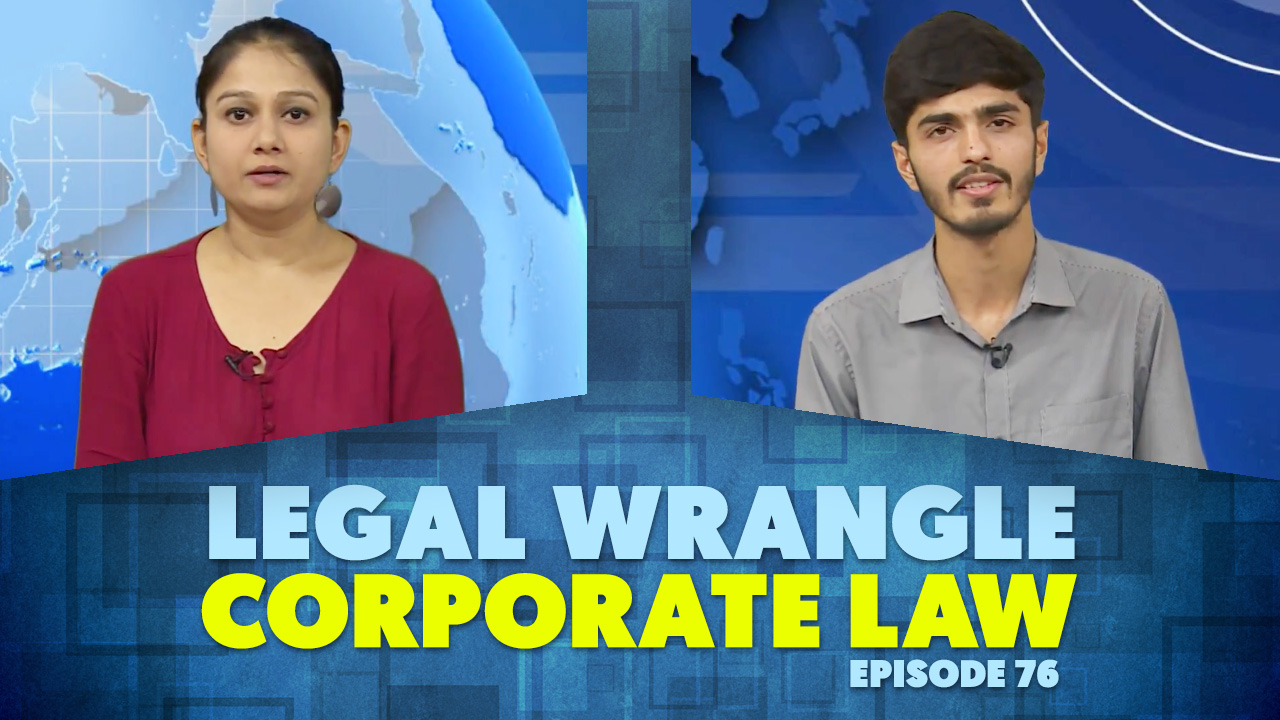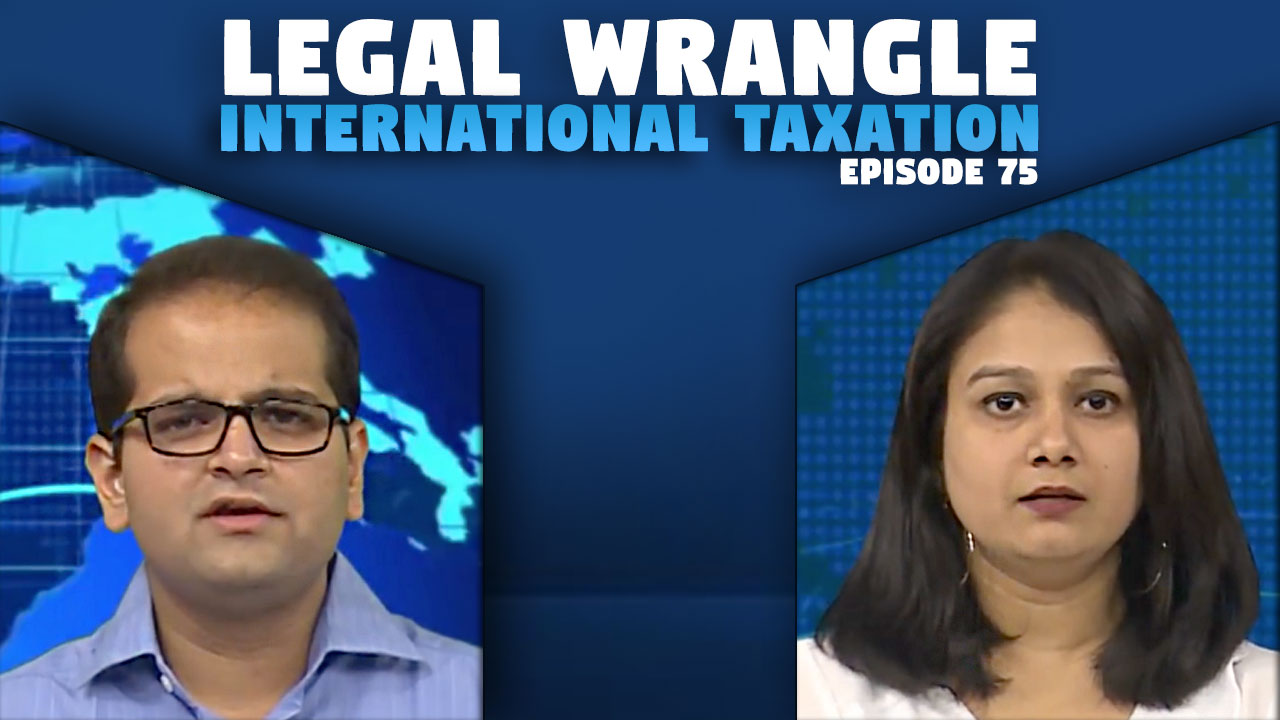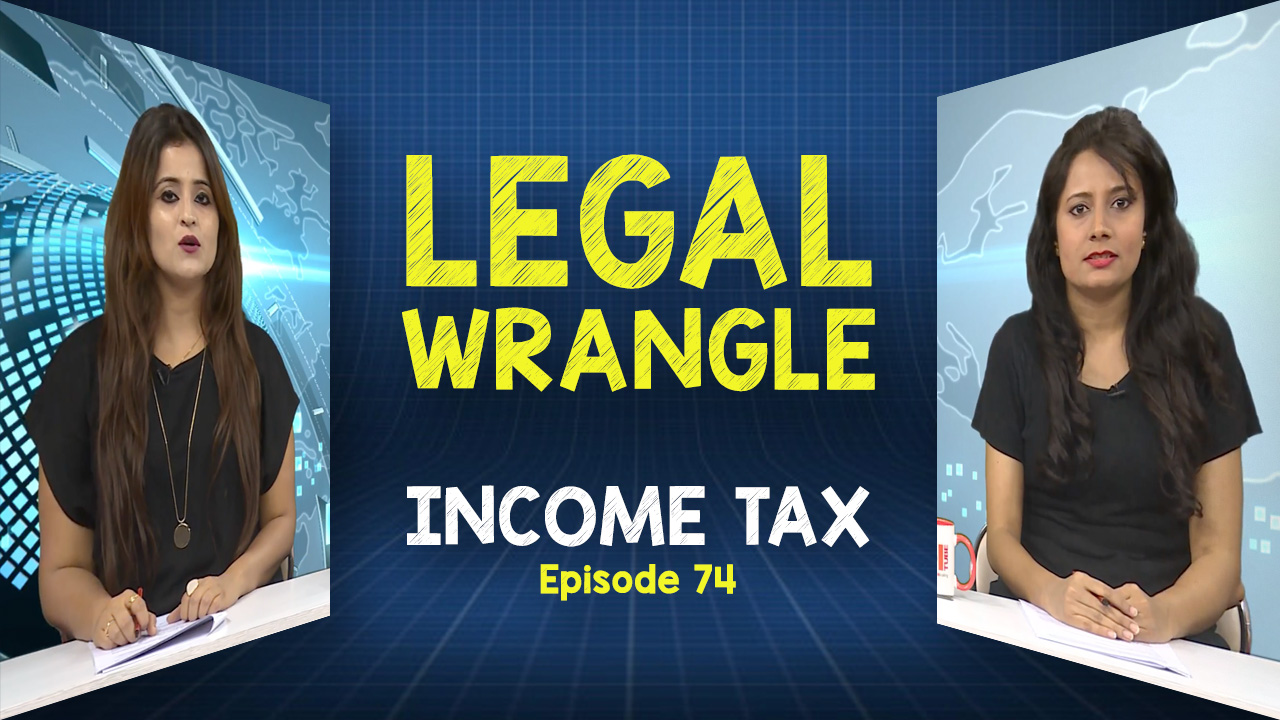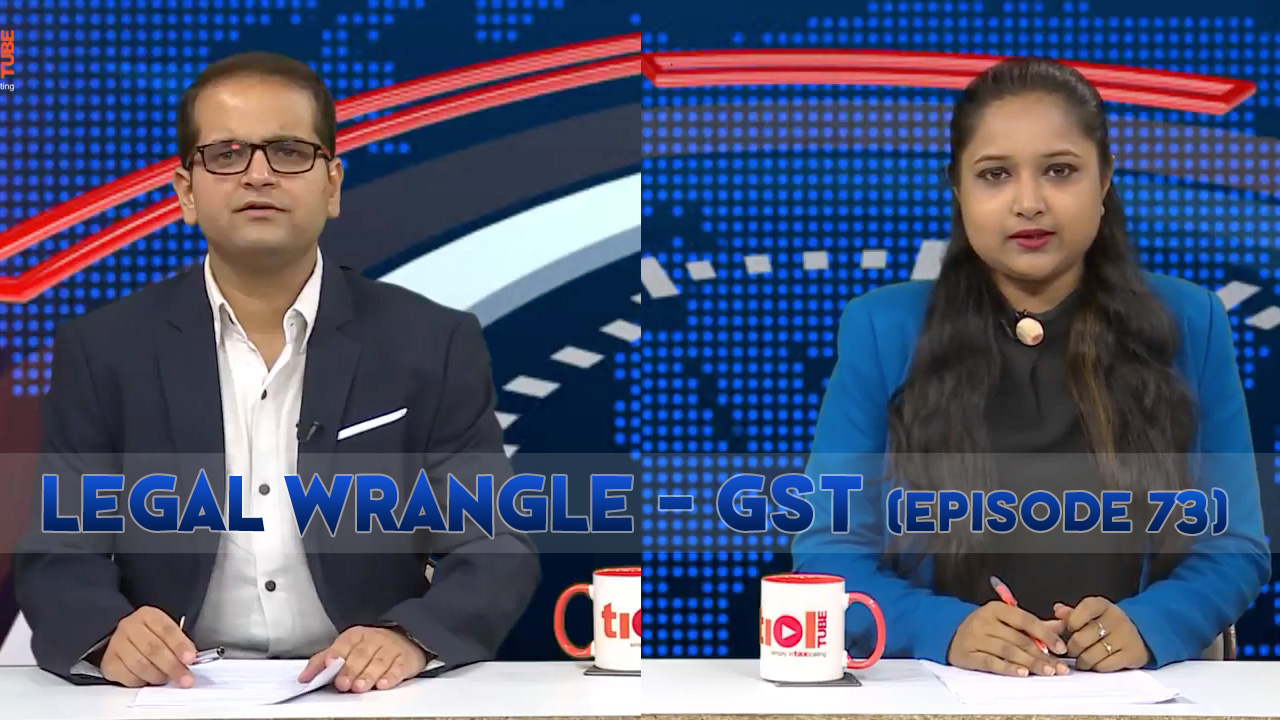|
SERVICE TAX
CST Vs Bharati Tele Ventures Ltd
ST - Assessee engaged in providing Telecommunication services and availed CENVAT Credit on Tower and Tower materials - Alleging that the credit availed on such towers and tower materials cannot be considered as 'capital goods' as defined under Rule 2(a) of CCR, 2004 or as inputs, a SCN was issued for recovery of total credit availed during period October, 2005 to March, 2006 - Commissioner in impugned order though upheld the admissibility of credit of Rs. 7,56,30,380/- on Towers & Tower materials as capital goods, but failed to make any observation that this credit should have been spread over in two financial years and accordingly, the assessee since availed the total credit in first financial year itself the total credit, liable to pay the interest on 50% of the credit availed in advance, which ought to have taken in next financial year - Demand notice was issued considering the credit availed on capital goods, therefore, the ground taken by Revenue is not beyond the purview of SCN - Thus, assessee is liable to pay interest for taking credit of 50% of credit in advance on capital goods allowed by Commissioner - As far as penalty is concerned, High Court has already held in Vodafone Essar Gujarat Ltd. 2017-TIOL-2107-HC-AHM-ST that no penalty is imposable under Rule 15(1) of CCR, 2004, therefore, no merit found in plea of Revenue - Accordingly, matter remanded only for the limited purpose of ascertaining the amount of interest: CESTAT - Matter remanded : AHMEDABAD CESTAT
Continental Automotive Components India Pvt Ltd Vs CC, CE & ST
ST- The assessee is exporting "Information Technology Software Service" - The assessee have taken cenvat credit on input services and filed for refund of unutilized cenvat credit accumulated on account of export of service - The Commr. (Appeals) rejected the refund claim on account of limitation - The Tribunal took the view that Section 11B is applicable for the purpose of computation of one year period for filing the refund claim and for export of service, the "relevant date" for the purpose of deciding the time limit for consideration of refund claim under Rule 5 of Cenvat Credit Rules will be the end of the quarter in which the FIRCs received - This follows from the cases of GTN Engineering & Indo-Nippon Chemicals Co. Ltd - Hence, the appeals are dismissed :CESTAT (Para 2, 3, 6) - Appeals Allowed : BANGALORE CESTAT
GL Communications India Pvt Ltd Vs CST
ST - Assessee is registered with Service Tax under category of 'Scientific and Technical Consultancy Service' and are engaged in export of IT software service - They filed refund claim under provisions of Rule 5 of CCR, 2004 r/w Notfn 5/2006-CE (NT) in respect of unutilized CENVAT credit paid by them on input services - A SCN was issued as their input services do not have any direct nexus with output service, non-registration in category of 'Information Technology Software Services' and non-taxability of 'Information Technology Service' prior to 16.5.2008 i.e., effective date of taxability on software development service, non-correlation of export invoices with FIRC, non-furnishing of relevant documents and necessary evidences and on issue of time bar in respect of filing of refund claim - Commissioner (A) has wrongly rejected the refund claim on the basis that it is time barred as well as non-registration under a particular category by assessee - Further, Tribunal in so many decisions has considered the issue of nexus and has held that the professional charges and furniture and fixtures are eligible input service - Further, insofar as time bar is concerned, this issue has been considered by Larger Bench of Tribunal in case of Span Infotech (India) Pvt. Ltd. 2018-TIOL-516-CESTAT-BANG-LB wherein it has been held that the relevant date for purpose of deciding the time limit for consideration of refund claim under Rule 5 of CENVAT Credit Rules may be taken as the end of quarter in which FIRCs is received, in cases where refund claims are filed on a quarterly basis - Further, rejection of refund claim on the ground of registration is also not sustainable in law in view of the judgment of Karnataka High Court in case of mPortal India Wireless Solutions Pvt. Ltd. 2011-TIOL-928-HC-KAR-ST - Matter remanded to the original authority to decide the refund claim of assessee: CESTAT - Matter remanded : BANGALORE CESTAT
CENTRAL EXCISE
Dabur India Ltd Vs CCE, C & ST
CX- The assessee is engaged in re-packing of edible grade coconut oil in retail packs - It classified the product under Chap 15 of the CETA - The Revenue opined that the item was classifiable under Chapter 33 of the CETA - CBEC issued Circular No. 890/10/2009-CX clarifying that coconut oil packed in small container of sizes up to 200ml shall be classified under Heading 33.05 - This circular was challenged by the assessee & other manufacturers of coconut oil before various High Courts - Pending decision, the assessee paid the duty on coconut oil under protest - It reflected the same as "amount recoverable" in its balance sheets - The assessee also claimed g refund of the duty so paid - Subsequently, the Tribunal settled the classification dispute in favour of the assessee and remanded the matter - However, the Commr.(A) again upheld the classification favoured by the Revenue & rejected the refund claims on grounds of unjust enrichment -
Held - The product is classifiable under Chapter 15 as edible oil and accordingly the same is chargeable to nil rate of duty - Further, the Department was directed to grant refund with interest: CESTAT (Para 2, 10) - Appeals Allowed : ALLAHABAD CESTAT
Essar Steel India Ltd Vs CCE & C
CX - The assessee manufactures iron ore pellets - During the period of dispute, the assessee availed credit of tax paid on landscaping services, catering services, rent a cab services and event management services - The Revenue contested such availment on grounds that credit availed after 01.04.2011 in respect landscaping and outdoor catering services was ineligible - It also disallowed part of credit availed on the outdoor catering services was because of exclusion from the definition of input services post 01.04.2011 - The Assessee highlighted that green belt around the factory was a mandatory requirement by the AP Pollution Control Board - In respect of event management services, the Revenue opined that they were for individual consumption, and so credit was disallowed -
Held - The credit of service tax paid on event management services can be availed, considering the Tribunal's decision in Castrol India Ltd - Further, w.r.t. landscaping services expense incurred for compliance purpose as a mandatory requirement is eligible for credit - The outdoor catering were availed and received by the assessee prior to 01.04.2011, & so is eligible for availing credit: CESTAT ( 3, 6, 6.1, 6.2) - Appeals Allowed : HYDERABAD CESTAT
Vraj Packaging Pvt Ltd Vs CCE
CX - Assessee was clearing rejected HDPE bags/woven fabrics @ Rs.1.5 to Rs.3 per kg - Revenue has recorded statements of assessee's employee, who have admitted that they were clearing bags in guise of waste - Revenue has also recorded statements of some of buyers who have admitted that they have made the payment in cash in excess to the invoice value - No retraction has been made to these statements - Moreover, even any scrap of plastic cannot be sold at price as low as Rs.1.5 to Rs.3 per kg. - The statement of buyers had not been retracted and MD has also not contradicted the statements of buyers - In these circumstances, merit found in impugned order - It has been notice that MD has claimed that no express role in case has been made out - It is seen that substantial quantity of materials has been cleared in guise of scrap and amounts have been received in cash - In these circumstances, the role of MD cannot be ruled out - The next contention raised by assessee relates to failure of extending the option to pay 25% of penalty subject to payment of duty along with interest within one month of the order - Since the option to pay 25% of penalty subject to condition of payment of duty along with interest within one month was not extended in Order-in-Original, the same offer is now extended in terms of Section 11AC of CEA, 1944 - The appeal of M/s Vraj Packaging Pvt. Ltd. is partly allowed to that extent only - The appeal of the MD Shri S.K. Babaria is rejected: CESTAT -
Appeals partly allowed
: AHMEDABAD CESTAT
CUSTOMS
CIRCULAR
cuscir14-2018
CBIC issues clarification on personal imports
NOTIFICATION
csnt48-2018
CBIC frames Exports by Post Regulations, 2018 - to come into force from 21st June 2018
INSTRUCTION
F.No.476/02/2016- LC
CBIC guidelines for improving trade facilitation through FPOs
CASE LAWS
2018-TIOL-1061-HC-DEL-CUS + Case Story
Forech India Ltd Vs Designated Authority
Cus - Anti-dumping duty - The Act, the Rules and the Implementing Agreement sanction a legal regime for protective measures but not for protectionism - Infusion of fresh life into the levy for a period of one year requires a fresh notification, in addition to the notification for initiation of the Sunset Review - levy under impugned Notification No. 17/2013 is without authority, hence it has to be and is set aside - Likewise, the second notification 35/2014 imposing Anti-Dumping Duty for a period of five years too cannot be sustained because it has to be issued within the period of first five years or in the extended one year period of Sunset Review in which the earlier existing duty has been extended - There would have to be a duty in existence for it to be extended, therefore, there could be no imposition of Anti-Dumping Duty for a further period of five years under the first proviso of Section 9A(5) of the Act - three month period in rule 18(1) of Customs Tariff (Identification, Assessment and Collection of Anti-dumping duty on dumped articles and for determination of Injury) Rules, 1995 is not a stand-alone authorization to the Government - It has to be harmoniously read with the strict timeline fixed in the statute under section 9A(5) of the Customs Tariff Act, 1975 - The thread of the existing duty has to continue from the initial five year levy to the one year extended period of Sunset Review to the proposed five year period and there should be no break in between - in the present case, there are two breaks, therefore, Rule 18(1) does not and cannot be read to lend any authority or power to the Central Government to issue Customs Notification No. 35/2014 which is illegal and, accordingly, set aside: High Court [para 20 to 24]
Cus - Anti-dumping duty on imports of rubber chemicals known as PX-13 (6PPD) originating in or exported from China PR and Korea PR - Initiation Notification No. 15/1/2013-DGAD dated 30.04.2013, Final Finding dated 29.04.2014 and the Customs Notification Nos. 17/2013 and 35/2014 issued on 05.07.2013 and 24.07.2014 respectively are set aside: High Court [para 24] - Petitions allowed
: DELHI HIGH COURT
CC Vs Arif Khichi
Cus - Without adjudication and decision on the legal position, the o(s)-in-o have been quashed and set aside and restored to the authorities to pass fresh o(s)-in-o - this procedure is not correct and proper - entire adjudication proceedings may have to be undergone again - this would cause harassment to the assessee as well as inconvenience to the department - Tribunal's order set aside - parties directed to appear before the Tribunal on 23rd July, 2018: High Court [para 7, 10] - Matter remanded : DELHI HIGH COURT
2018-TIOL-1714-CESTAT-MAD
Global Star Logistics Cha Vs CC
Cus - Assessee imported Ordinary Port Land Cement in packaged form of 50 kgs. each - The assessee/CHA filed Bills of Entry for clearing the said goods claiming CV duty concession in terms of Sl.No.1C of Notfn 4/2006-CE as amended - The Bills of Entry indicated among other things "actual user" and claimed the said concession - The bills were assessed and finalized and goods were allowed extending the said concessional rate of CV duty - Later in 2013 and 2014, department entertaining a view that concession claimed and allowed under said notfn is not correct, initiated proceedings against all the assessees/CHAs - It is clear that Bills of Entry filed along with invoices contain details of goods imported - The exporters details with evidences linking up with high sea sale invoices further linked up with Bill of Entry - Hence, the import from designated exporter who is declared as manufacturer of cement based on details in invoices cannot be disputed - No contrary evidence that purchase is from a trader has also been submitted by Revenue.
Regarding the second issue of actual user condition for the imported cement, assessee all along claimed fulfilment of such condition - Though same is post-importation, actual use based condition, the assessments were finalized accepting the claim of assessee for such concessional duty - It would appear that officers had opportunity to satisfy themselves about the actual user condition - In case of possible doubt on such fulfilment, the requirement is to resort to provisional assessment and call for post-importation actual user confirmation - This was not done which will show that the assessing officer is satisfied with the claim made by assessee - Revenue can initiate demand proceedings of differential duty by denying the exemption later, only upon unearthing the evidences of misuse of such end-use condition - Such evidences have not been brought before Tribunal - In such situation, eligibility to CV duty concession as claimed by assessee during material time cannot be questioned much later without any evidence.
Penalties imposed on CHA who only processed the import documents are not legally sustainable - For penalty to be imposed for abetting a violation by another person, intentional action has to be shown - No such evidence has been brought out - Accordingly, penalties imposed on CHAs are not sustainable: CESTAT - Appeals Allowed : CHENNAI CESTAT
Sujana Industries Ltd Vs CC
Cus - the assessee was granted license for importing capital goods at nil rate of duty under Notfn No 111/95-Cus under the EPCG scheme - In return the assessee had to be manufacture & export 'ball-roller and spherical bearings' within eight years - When the assessee later imported some capital goods, the same were seized on groudns that the assessee failed to fulfil export obligation - Redemption fine & penalty were imposed while duty demand was raised as well - While the assessee's appeal was pending before the Tribunal, the assessee obtained an extension of the period for fulfiling export obligation - Hence the Tribunal remanded the matter to the original authority, who proceeded to disallow the exemption granted -
Held - The original authority relied upon a Tribunal decision which was later remanded by the Madras High Court to resolve a question of law - Hence such decision cannot be relied upon - Besides, in many decisions, the competence of Customs authorities to decide on the export obligation certificate issued by licensing authority was rejected - The conditions governing the imports made by the assessee were attained substantially - Also with the restricted value of goods imported goods to that actually effected, the minimum import value is difficult to achieve - Hence the original authority erroneously held that the assessee violated the conditions of the notification: CESTAT (Para 2,6,7) - Appeals Allowed : HYDERABAD CESTAT
|
|




 By SC Jain
By SC Jain



